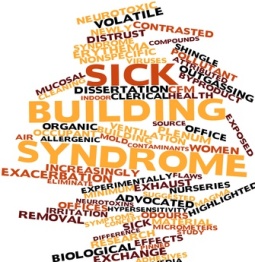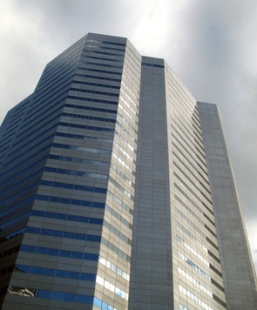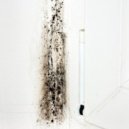Find a pre-screened local mold removal specialist Free Estimate
Find a Mold Specialist Now
Click or Call, Toll-Free 24/7
Sick Building Syndrome
Sick building syndrome is a term used to describe a group of symptoms experienced by people – usually employees – when they spend significant periods of time in a building. The syndrome is said to exist when at least 20 percent of the employees experience symptoms and their symptoms go away when they aren’t at work.
According to the National Health Service (NHS), most cases of the syndrome have been reported in office buildings, particularly those with open floor plans, but it has also been known to occur in other kinds of buildings as well, including libraries, schools and museums. The syndrome may also develop in a home but that is much less common. You might be surprised to learn that it is most likely to develop in modern buildings in which windows do not open and that have mechanical ventilation and air conditioning.
Possible Causes of Sick Building Syndrome
Neither researchers nor doctors know for certain what causes the syndrome and many believe it may be a combination of factors. Possible contributing factors include:
- Lack of adequate ventilation
- Mold, dust, or other allergens
- Chemicals from things like cleaning products, carpet fibers, or paint
- Lack of general cleanliness
- Poor lighting or florescent lights that flicker
- High temperature or temperatures that fluctuate throughout the day
- Job stress or low morale among employees
Symptoms of Sick Building Syndrome
Many people wonder if the syndrome might be caused by mold because the symptoms look a lot like mold exposure symptoms. Symptoms may include:
- Shortness of breath
- Headaches
- Hoarseness
- Itchy, watery eyes
- Dizziness
- Nausea
- Itchy skin or a rash
- Fatigue
- Swollen feet and legs (edema)
- Increased incidence of some types of cancer
People in a “sick building” may experience some or all of these common symptoms. Symptoms go away when they are out of the building, especially when they are away for a few days or longer.

Treating Sick Building Syndrome
Over-the-counter medicines may help relieve symptoms. For instance, throat lozenges can help reduce hoarseness, while analgesics like acetaminophen or ibuprofen can help relieve headaches. These will only provide temporary relief at best, though, and over-the-counter medicines are not intended for long-term use. Use them only as directed and only use them for extended periods of time if recommended by your doctor.
If your symptoms don’t improve or if they are severe, see your doctor. Let your doctor know if you think your workplace or another building is making you sick. Be sure to tell your doctor when and where you experience symptoms and if they go away when you spend a day or two away from the building in question.
Your doctor may order some tests to look for the cause of your symptoms and may prescribe medications to help you feel better. However, you are likely to continue feeling sick as long as you continue to be exposed to whatever is causing your illness. Continued exposure may even lead to chronic health problems.
Avoiding Exposure to a “Sick Building”
Your first thought here might be, “Wait! I can’t afford to quit my job!” Relax. You may not have to.
If you own your own business, then it’s simple. Have an inspector come in to check for mold and other possible pollutants. Here is more about choosing a mold inspection company.
If you’re not in charge, then you’ll need to talk to whoever is in a position to do something about the building.
Take pictures of any wet or discolored walls or ceilings, as well as any visible mold. Put your concerns in writing. Communicate by email so that you have a record of what was said or ask to record any conversations with company officials about the problem (don’t record any conversations without the other party’s consent, because that is illegal in some states).
If your employer is not receptive to your concerns and doesn’t take steps to address the problem, you can contact the U.S. Occupational Safety and Health Administration (OSHA).
If you’re already experiencing significant health problems due to mold or some other pollutant in your workplace, you may be entitled to Workers Compensation or some form of disability.
Contacting a Mold Inspection Company
If it seems you or your co-workers may be experiencing mold exposure symptoms, your employer should hire a mold inspection company to come in and test for mold. The inspector can test for other pollutants as well. You can find qualified inspectors in your area by following the link provided.
Return From Sick Building Syndrome To Our Main Mold Health Issues Page
Free Home Inspection By A Mold Removal Specialist
Search This Website
 Modern Office Building
Modern Office BuildingRecent Articles
-
See Our 5 Recommended Mold Removal Companies in Covington, KY
Apr 16, 25 12:59 PM
-
See Our 5 Recommended Mold Removal Companies in Wheaton, IL
Jun 20, 24 10:33 AM
-
See Our 5 Recommended Mold Removal Companies in Aberdeen, SD
Oct 08, 21 04:05 PM




